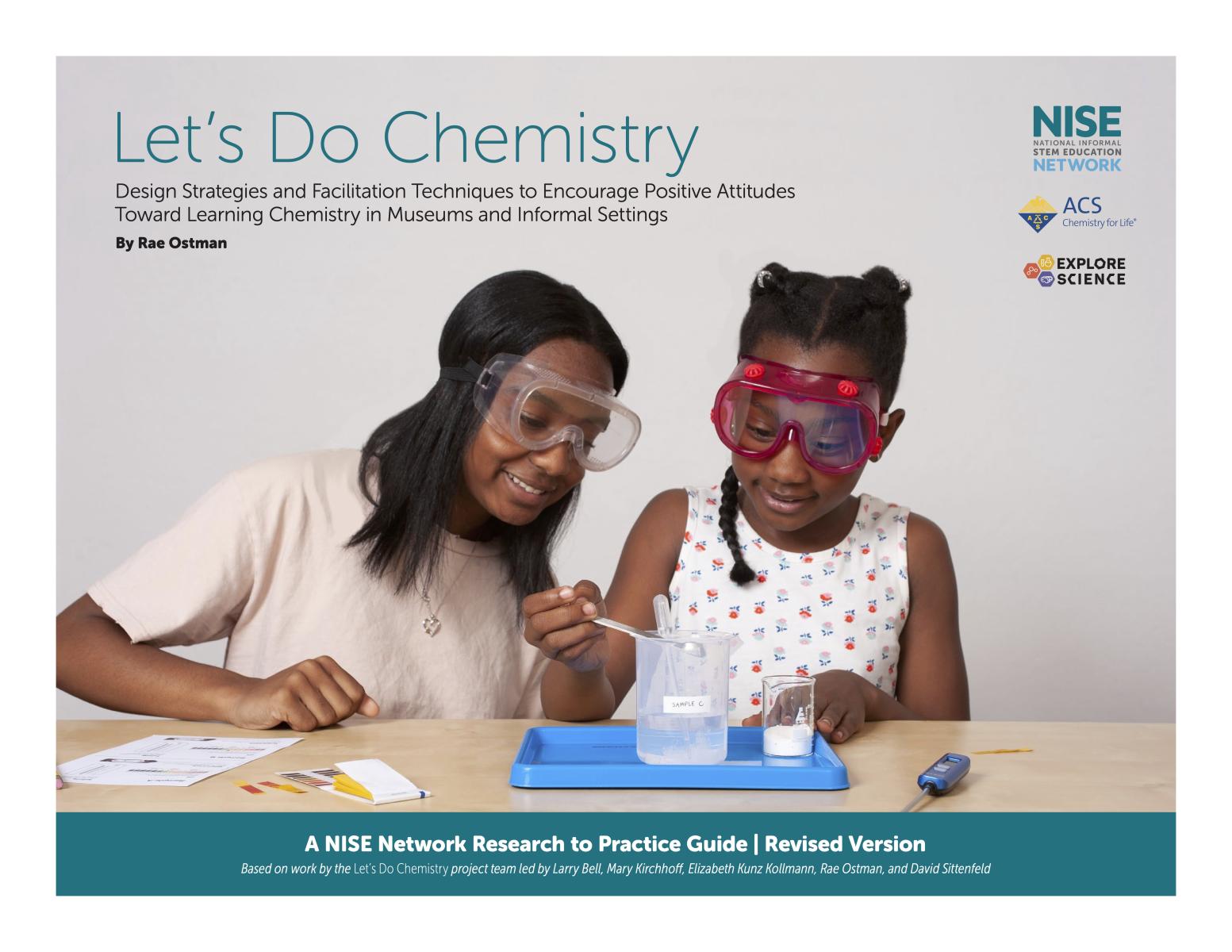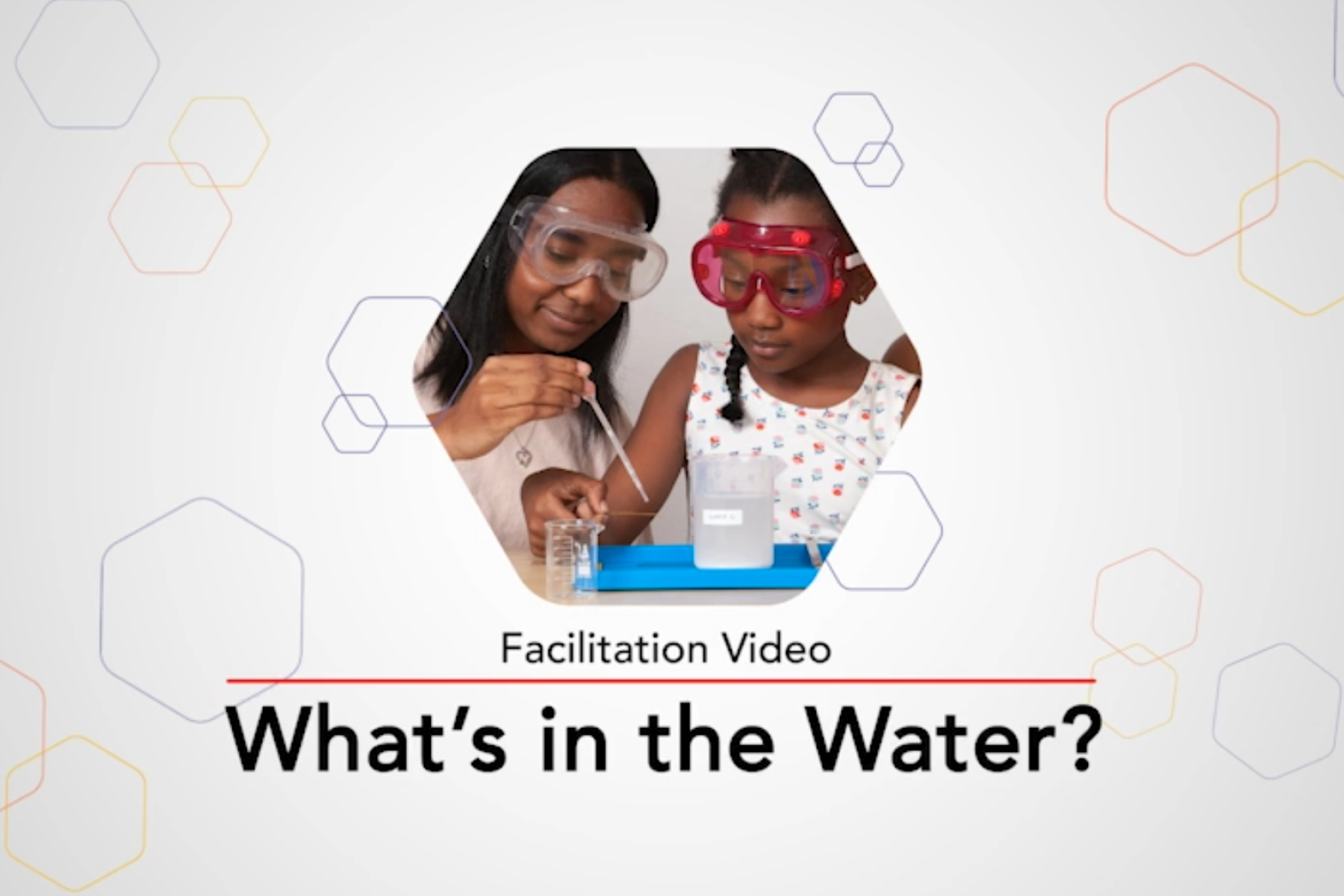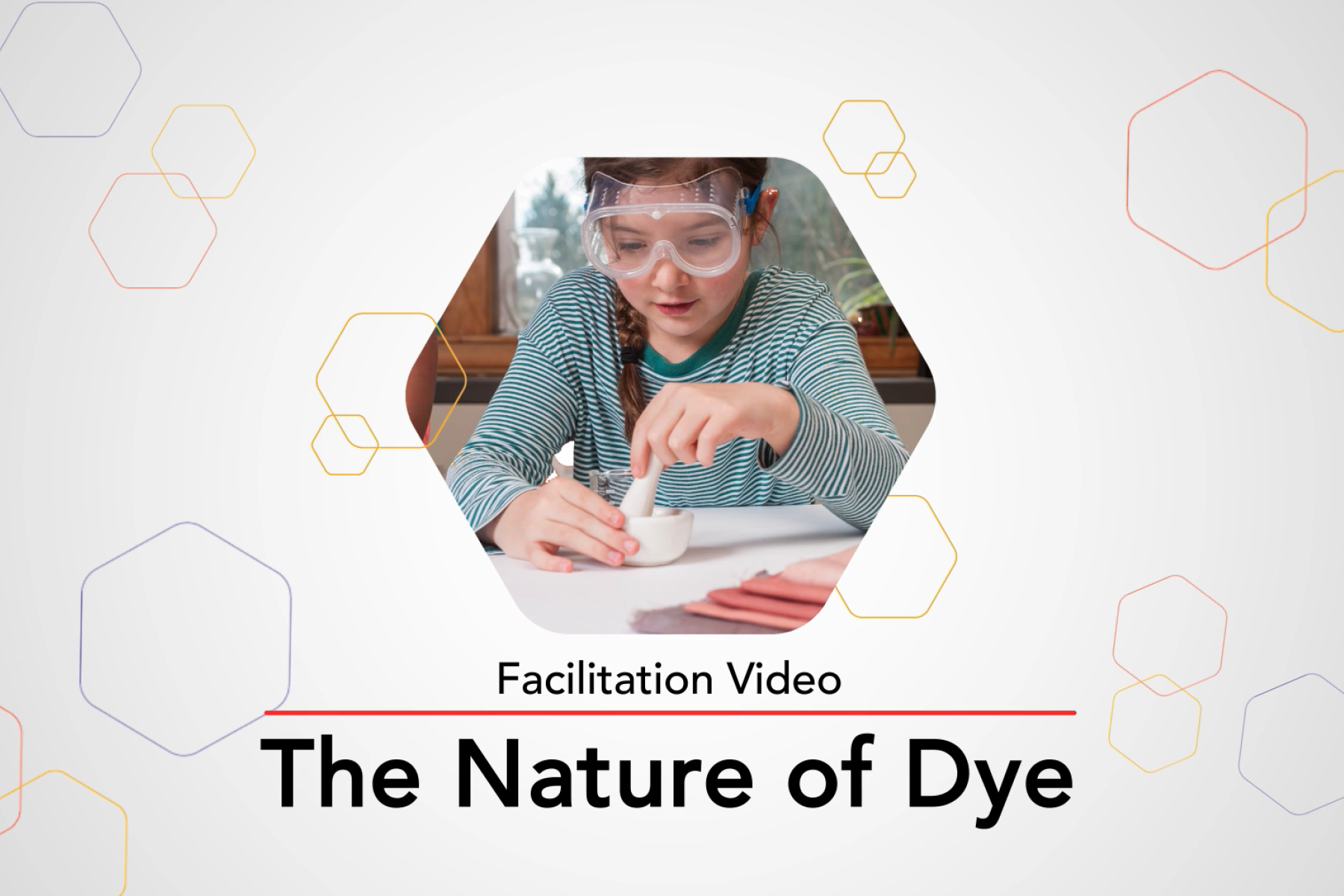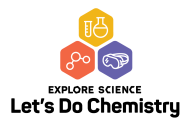DESCRIPTION
These resources will help you and your facilitators run a fun, successful Let's Do Chemistry event and to encourage positive attitudes toward learning chemistry. Included is guide entitled, "Let’s Do Chemistry: A Framework and Strategies to Encourage Positive Attitudes Toward Learning Chemistry in Museums and Informal Settings" focused on identifying evidence-based design strategies that increase participants’ interest, relevance, and self-efficacy.
Suggested Citation:
Ostman, R. (2020). Let’s Do Chemistry: Design Strategies and Facilitation Techniques to Encourage Positive Attitudes Toward Learning Chemistry in Museums and Informal Settings (revised December 2020), Tempe, AZ: Arizona State University.
DESCRIPTION
These resources will help you and your facilitators run a fun, successful Let's Do Chemistry event and to encourage positive attitudes toward learning chemistry. Included is guide entitled, "Let’s Do Chemistry: A Framework and Strategies to Encourage Positive Attitudes Toward Learning Chemistry in Museums and Informal Settings" focused on identifying evidence-based design strategies that increase participants’ interest, relevance, and self-efficacy.
Suggested Citation:
Ostman, R. (2020). Let’s Do Chemistry: Design Strategies and Facilitation Techniques to Encourage Positive Attitudes Toward Learning Chemistry in Museums and Informal Settings (revised December 2020), Tempe, AZ: Arizona State University.
TRAINING VIDEOS
DOWNLOAD FILES
- Design Strategies and Facilitation Techniques to Encourage Positive Attitudes Toward Learning Chemistry (2020 rev) PDF
- Tips for facilitating hands-on chemistry activities (PDF)
- Let’s Do Chemistry Event Training and Overview presentation (PDF with notes)
- Let’s Do Chemistry Event Training and Overview presentation and notes (PPTX)
Credits
Developed for the NISE Network with funding from the National Science Foundation under Grant Number DRL 1612482. Any opinions, findings, and conclusions or recommendations expressed in this material are those of the author(s) and do not necessarily reflect the view of the National Science Foundation. Any opinions, findings, and conclusions or recommendations expressed in this product are those of the authors and do not necessarily reflect the views of the Foundation.
Creative Commons Attribution Non-Commercial Share Alike 3.0 United States (CC BY-NC-SA 3.0 US).
View more details

NISE Network products are developed through an iterative collaborative process that includes scientific review, peer review, and visitor evaluation in accordance with an inclusive audiences approach. Products are designed to be easily edited and adapted for different audiences under a Creative Commons Attribution Non-Commercial Share Alike license. To learn more, visit our Development Process page.




